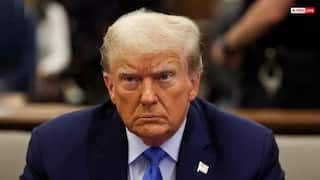From Ban To Regulation: How India's Crypto Stance Evolved Over The Years
In March 2020, the Supreme Court overturned RBI's ban on cryptocurrency, officially legalising their use in India.

India is one of the largest economies in the world, and until last year, it was one of the fastest adopters of crypto; so its approach is watched very closely as it could impact global cryptocurrency regulation. As the Indian government works on establishing a regulatory framework for digital assets, recent events suggest that the upcoming crypto regulations could have a significant impact on the market. In this article, we will look at the tortuous journey of cryptos toward regulation.
Legalisation Of Crypto
The Centre's stance on cryptocurrency has evolved in recent years. In 2013, the Reserve Bank of India (RBI) issued a warning to individuals or businesses dealing with virtual currencies, and in 2017, it prohibited banks and other regulated institutions from providing services to cryptocurrency traders, effectively banning the purchase or sale of cryptocurrencies by Indian residents.
However, in March 2020, the Supreme Court overturned RBI's ban on cryptocurrency, officially legalising their use in the country. Since then, the Indian government has been considering the establishment of a cryptocurrency regulatory framework.
Union Budget Announcements
In the 2022 Union Budget, Finance Minister Nirmala Sitharaman proposed significant changes to the treatment of virtual assets, including cryptocurrencies.
The government formally classified digital assets as "virtual digital assets" for the first time, and announced a 1 per cent TDS and a flat 30 per cent income tax on the transfer of "crypto-assets" in the proposed tax framework.
ALSO READ: Crypto Tax In India: A Tale Of Control Or Caution?
These changes marked a significant step towards providing clarity to investors and entrepreneurs dealing with digital assets in India and regulating the cryptocurrency market.
In the 2023 Budget, provisions were amended to include traders transacting in foreign exchanges and address non-payment of taxes.
The new act imposes a penalty equal to the unpaid TDS as well as a possible jail term of up to six months for non-compliance. Late payments may also attract a 15 per cent yearly interest cost.
Digital Rupee Trials
The RBI initiated central bank digital currency (CBDC) trials in late 2022. The RBI's move shows the Indian government's growing interest in the potential of crypto.
The pilot for the CBDC is being conducted in both the wholesale and retail segments. The Digital Rupee-wholesale (e-₹W) trial started on November 1 last year to settle transactions in government securities on the secondary market.
The Digital Rupee-retail (e-₹R) trial allows consumers to use digital currency for daily transactions. If the RBI's pilots work well, it could be a big step toward more people using CBDCs in India and around the world.
In early March 2023, the Indian government decided to subject crypto to the Prevention of Money Laundering Act (PMLA). The rules require businesses that deal with cryptocurrencies to register with the government and comply with anti-money laundering and counter-terrorism financing requirements.
These businesses will also be required to maintain records of all transactions and report suspicious activity to the government. Failure to comply with these regulations could result in penalties or even criminal charges. With the decision to impose taxes and place crypto companies under the purview of the PMLA, the government signalled that it is slowly but surely taking baby steps towards crypto regulation.
Call For Global Coordination
Meanwhile, Prime Minister Narendra Modi and Sitharaman have called for a coordinated approach to cryptocurrencies around the world.
To that end, India announced in February 2023 that it is collaborating with the International Monetary Fund (IMF) and the Group of Twenty (G20) nations to create a regulatory framework for cryptocurrencies. This move is expected to guide policymakers in India and around the world as they consider how best to regulate this rapidly evolving asset class.
ALSO READ: Economic Survey 2023: Common Approach A 'Necessity' To Regulate Crypto
India's step-by-step approach to regulating cryptocurrencies has been the subject of debate, with some criticising the government for being too cautious while others argue that the current approach strikes the right balance between innovation and consumer protection.
Overall, India's regulatory framework for cryptocurrencies is continuing to evolve, and its impact on the global cryptocurrency market remains to be seen.
(The author is the Vice President of crypto investment platform WazirX)
Disclaimer: The opinions, beliefs, and views expressed by the various authors and forum participants on this website are personal. Crypto products and NFTs are unregulated and can be highly risky. There may be no regulatory recourse for any loss from such transactions. Cryptocurrency is not a legal tender and is subject to market risks. Readers are advised to seek expert advice and read offer document(s) along with related important literature on the subject carefully before making any kind of investment whatsoever. Cryptocurrency market predictions are speculative and any investment made shall be at the sole cost and risk of the readers.
Related Video
India@2047 Summit: Modi Calls for Innovation, Reforms, and National Resolve





































